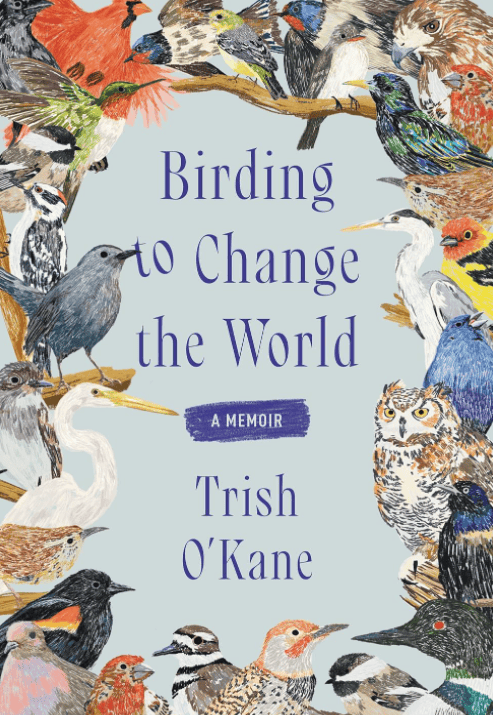Trish O’Kane, a senior lecturer in the environmental program at the University of Vermont, is coming to The University of Alabama to share her memoir, “Birding to Change the World,” Oct. 8.
After surviving Hurricane Katrina in 2005, O’Kane moved from New Orleans, Louisiana, to Madison, Wisconsin, in pursuit of a Ph.D. in environmental studies. Katrina opened O’Kane’s eyes to the state of the environment, and she was determined to begin making a difference in the world and the detrimental environmental future that lay ahead. While dealing with the aftermath of the hurricane and the mental struggles caused by the destruction, O’Kane turned to a source of joy that was in her own front yard: birds.
“I wrote the book, really, as a thank you letter to the birds. … It was a moral debt that I had to pay,” she said.
O’Kane said the park she lived across from in Madison was facing the threat of a large development, meaning the creatures who lived there would lose their place of refuge. This was unacceptable for her, and she began to advocate for the protection of the park. Protesting against the development, writing for a nature column in a newspaper and going door to door alerting neighbors of changes awaiting the park was how she transformed her passions into action.
This reinvigorated her determination to make long-term changes to save the environment — protecting habitats for animals.
O’Kane said that she hopes the book will call her readers to find ways to support the world around them. She believes that protecting the environment is an urgent mission everyone is called to and that it is one each person can easily uphold.
“There’s many ways to do activism. I really consider it citizenship,” O’Kane said.
O’Kane advised that the younger generation, such as students in college, should take the first step and dive into the problems facing the environment by talking to their parents and grandparents about those issues.
She said speaking with people who have lived long enough to see the downfalls in the conditions of their surroundings can inspire students to bring attention to those downfalls and speak out because their voices are powerful.
Throughout the memoir, O’Kane expands on this advice by weaving together the facts from her 350-page dissertation, quotes from notes and interviews, and her own personal testimonies. Her book outlines Katrina, details climate issues and provides encouragement to anyone looking to make a change in the world.
“It’s a story of falling in love with the place and the creatures that lived there, and a story of gratitude and healing, and then a story of territorial defense,” O’Kane said.









